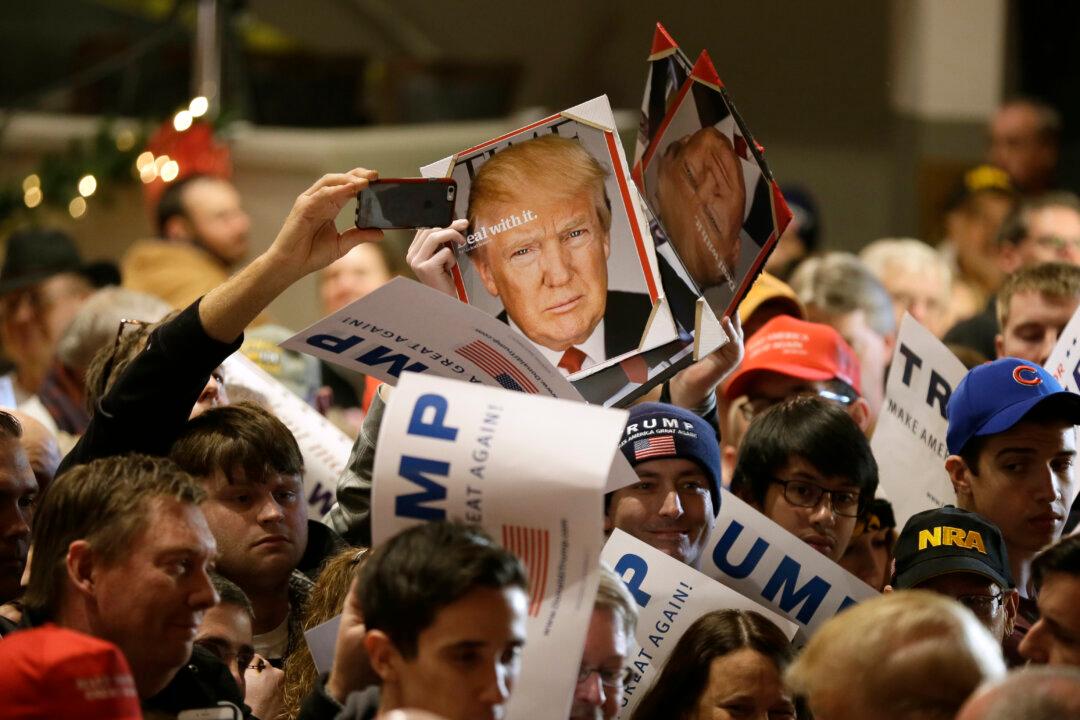WEST DES MOINES, Iowa—It’s the No. 1 question headed into the primary season: Does Donald Trump merely have fans, or does the national front-runner for the Republican presidential nomination have voters who will mobilize come Iowa caucus day?
The definitive answer won’t arrive until first-to-vote Iowa heads to the polls on Feb. 1, but interviews with dozens of voters, political operatives, party leaders and campaign volunteers in the past week painted a mixed picture of Trump’s efforts to make sure they do.
Even some of the billionaire real-estate mogul’s most ardent backers wonder whether the political novice has the kind of ground game needed to ensure supporters — especially those new to taking part in a caucus — can navigate a process that isn’t as easy as simply casting a ballot.
But many believe that even if Trump is falling short when it comes to building a get-out-the-vote effort, his supporters are so enthusiastic that it won’t much matter.
“I have a feeling we’re going to actually do better than the polls are saying because there’s a movement,” Trump told supporters in suburban Des Moines last week, dismissing suggestions the thousands who pack his rallies won’t make it out on caucus night.
“I don’t know, maybe they won’t,” he added. “But it seems crazy because some of those people were waiting on line for seven hours in the cold.”






